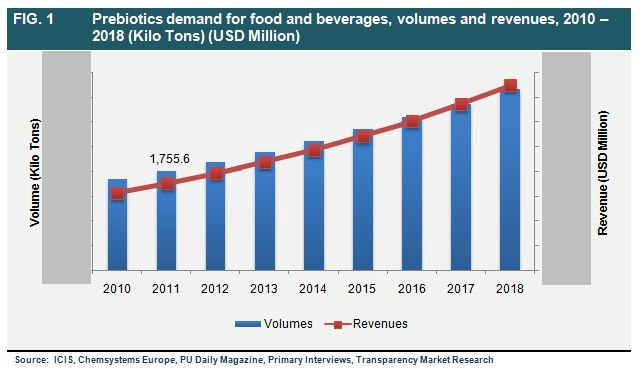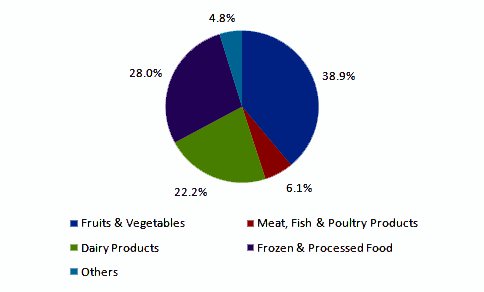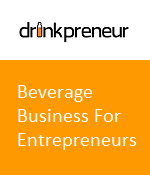
Food & Beverages 2018

Theme: Rejuvenating the Trends in Food and Beverages
Meetings International feels proud and honoured in inviting the contributors across the globe to the “International Conference on Food and Beverages” which is to be held on August 06-07, 2018 Tokyo, Japan. This is meant to crease the leading intellects to a platform for round table confab on Food Innovation and its progress. It is the unique service to convey globally renowned universities in the department of food science and beverages, public health nutritional facts, scientists, speculative researchers, food researchers, scholar's etc. This is the congress where you will be having an outstanding experience with the gathering. This conference provides the innovative food technology methods and also you can improve your network globally by interacting with the various experts related to the field of food technology across the world.
Meetings International is a world leader in conducting high quality symposiums, meetings, conferences, workshops and Exhibitions. It provides a Global Platform for Chemistry Professionals, Biotech, Medical and Healthcare Professionals to Exchange Ideas, Knowledge and Networking. Meetings International has been associated with major Corporations, National and international associations and high level individuals, dedicated to host world class events.
The main aim of Food and Beverages conference is to provide a chance to all the experts around the globe to meet at one stage of food conference to explore latest technologies and recent scientific research as well as future of food technologies and their interconnected fields. The Food and Beverages conference aspire to converge the big names around the globe to come down to a common place, share a common podium and extend their knowledge among future researchers, entrepreneurs as well as the farmers who devote their labour and time to provide food to the entire world. This Beverages conference also provides a premium interdisciplinary podium to build up a network from the grass root to the apical top among the people allied to food science.
Tokyo, officially Tokyo Metropolis, is the capital city of Japan and one of its 47 prefectures. It is the busy capital, mixes the ultramodern and the traditional, from neon-lit skyscrapers to historic temples The opulent Meiji Shinto Shrine is known for its towering gate and surrounding woods. The Imperial Palace sits amid large public gardens. The city's many museums offer exhibits ranging from classical art (in the Tokyo National Museum) to a reconstructed kabuki theater (in the Edo-Tokyo Museum).
Session 1. Food Preservation:
Food preservation is to prevent the growth of microorganisms , as well as slowing the oxidation of fats that cause rancidity. Some traditional methods of preserving food have been shown to have a lower energy input and carbon footprint, when compared to modern methods. Knowing how to preserve food has been crucial all over our history as humans. Study that before the introduction of refrigeration, which was eventually devised in the 18th century, but was not perfected and widespread until the 20th century, most of development had to make do devoid of refrigeration and freezing.
Food Preservation Conference, Food Preservation Meeting, Food Preservation Symposium, Food Preservation Summit, Food Preservation Event, Food Preservation Seminar, Food Preservation Congress, International Food Preservation congress, Food Preservation Workshop.
Session 2. Food Adulteration:
As a result of adulteration, food or drink becomes impure and unfit for human consumption. It leads to the loss of nutrient content in the food. Adulterated food is unsafe because it may be lethal and can affect human health and it could degrade the nutrients essential for proper growth and development of human body. Some of the common adulterated foods are milk and milk products, atta, edible oils, cereals, condiments (whole and ground), pulses, coffee, tea, confectionary, baking powder, non - alcoholic beverages, vinegar, besan and curry powder.
Food Adulteration Conference, Food Adulteration workshop, Food Adulteration Seminar, Food Adulteration congress, Food Adulteration Summit, Food Adulteration Symposium, Food Adulteration Event, International conference on Food Adulteration.
Session 3. Food and Beverage Processing:
Food and Beverages are processed to improvise the quality of the food. The processing of food is done to preserve the food. Once if any food item is processed the lifespan of that food gets increased. Many processing techniques are in use to improve the quality of food. There are both natural and artificial food & beverage processing methods, many methods are in use from the ancient period.
Conference on Food & Beverage Processing, Meeting on Food & Beverage Processing, Symposium on Food & Beverage Processing, Congress on Food & Beverage Processing, Event on Food & Beverage Processing, Summit on Food & Beverage Processing, International Conference on Food & Beverage Processing, Global Summit on Food & Beverage Processing.
Session 4. Nutritive Aspects of Food:
In addition to providing the substance for building and maintaining the body, the energy for all of the body's functions comes from the food consumed. Further, there is increasing evidence that mental processes and behavioural attitudes are influenced by nutritional status and specific nutrients. The food scientist must consider the nutritive aspects of food from two broad points of view: first, what nutrients do foods contain and what are man's requirements for these; and second, what are the relative stabilities of these nutrients and how are they affected by food processing and handling. The science of nutrition, concerned with these broad areas, also deals with the physiological and biochemical phenomena of food utilization as related to health everything is discussed in this food conference.
Conference on Nutritive Aspects of Food, Meeting on Nutritive Aspects of Food, Symposium on Nutritive Aspects of Food, Congress on Nutritive Aspects of Food, Event on Nutritive Aspects of Food, Summit on Nutritive Aspects of Food, International Conference on Nutritive Aspects of Food, Global Summit on Nutritive Aspects of Food.
Session 5. Food Quality, Safety and Preservation:
Food preservation on the other hand fundamentally aiming at minimizing post harvest losses of food while improving the shelf-life and value supplement. As food safety concerns started to surface with food borne illnesses, food safety management systems slowly progressed and developed to today's sophisticated levels. Food and water borne diseases are major public health problems worldwide and an important cause of malnutrition, in infants and young children. Food safety and quality management systems control food safety hazards and ensure safe food supplies for a well nourished and healthy nation. In addition, food safety and quality management often reduce post harvest losses and increase food availability to enhance food security. Integrating food safety and quality in food supply chains increases and sustains the supply of quality safe foods in internal markets.
Conference on Food Quality, Conference on Food Safety, Meeting on Food Quality, Meeting on Food Quality, Symposium on Food Safety, Symposium on Food Quality, Congress on Food Quality, Congress on Food Safety, Event on Food Quality, Event on Food Safety, Summit on Nutritive Food Quality, Summit On Food Safety International Conference on Food Safety, Global Summit on Food Summit.
Session 6. Recent Advancement in Food and Beverage Sector:
Recent advancements in food and beverage sector includes artificial intelligence development in food industry, smart packaging systems like Nano packaging, edible packaging films are virally growing. Apart from smart packaging many new innovations such as food labelling, fully computerize the food industry with robotics and automations, which would further lead to a totally new era in food industry. The food and beverages conference mainly deals with the advancements such as nano packaging, plasma technology, robotics etc.,
Conference on Recent Advancements in Food & Beverage Sector, Meeting on Recent Advancements in Food & Beverage Sector, Symposium on Recent Advancements in Food & Beverage Sector, Congress on Recent Advancements in Food & Beverage Sector, Event on Recent Advancements in Food & Beverage Sector, Summit on Recent Advancements in Food & Beverage Sector, International Conference on Recent Advancements in Food & Beverage Sector, Global Summit on Recent Advancements in Food & Beverage Sector.
Session 7. Evaluation of Food and Beverage Plant:
The widespread growth of technological advances stack up with electricity which has revolutionized food industry and prompted the manufacture of new specialist food processing machineries. To design the machineries immense knowledge about the mass transfers, kinetics involved in flow of fluids is preferred. This session of food conference deals with the most important part of the industry, the designing of equipment’s, food plant layout design, and implementation of sensors in food and beverage industry.
Conference on Evaluation of Food & Beverage Plant, Meeting on Evaluation of Food & Beverage Plant, Symposium on Evaluation of Food & Beverage Plant, Congress on Evaluation of Food & Beverage Plant, Event on Evaluation of Food & Beverage Plant, Summit on Evaluation of Food & Beverage Plant, International Conference on Evaluation of Food & Beverage Plant, Global Summit on Evaluation of Food & Beverage Plant.
Session 8. Fermentation & Bioprocess Engineering:
In this Food Conference one of the main topic involved is fermentation. Fermentation involves in converting carbohydrates to alcohol or inorganic acids using microorganisms. As the microorganisms divide, lactic acid is formed, which stops the growth of bad bacteria. The lactic acid is also what gives fermented foods that very specific ‘tangy’ or ‘acidic’ taste. Fermented foods can last for many months (some products even lasting multiple years) as long as they are stored in a cool, dark place and kept in the solution of salt and water known as brine. Fermentation can also make food healthier and safer to consume. For instance, in the Middle Ages, drinking water was hazardous because it frequently contained pathogens that could spread disease. Making the water into beer made it safe to drink, as any deadly bacteria previously present in the water were killed during the brewing process. Additionally, since microorganisms can produce vitamins as they ferment, the beer had added nutrients in it from the barley and various other ingredients. The most regularly consumed fermented food and drink would be cheese, beer, wine, yogurt, cured sausage and sourdough bread. Many store-bought fermented foods, like sauerkraut or pickles, are not authentic as they are often preserved in vinegar instead of the traditional and naturally occurring beneficial bacteria. Due to North America’s strict health and safety concerns, these foods are also often pasteurised, which robs the foods of their nutrients and minerals.
Conference on Fermentation & Bioprocess Engineering, Meeting on Fermentation & Bioprocess Engineering, Symposium on Fermentation & Bioprocess Engineering, Congress on Fermentation & Bioprocess Engineering, Event on Fermentation & Bioprocess Engineering, Summit on Fermentation & Bioprocess Engineering, International Conference on Fermentation & Bioprocess Engineering, Global Summit on Fermentation & Bioprocess Engineering.
Session 9. Dairy Food and its Commercial Future:
Dairy foods are which extracted from or containing milk of mammals, cows, buffaloes, goat, sheep, camels and humans. This also includes yogurt, cheese and butter. As the dairy products are rich in nutrition their commercial value is high and has a greater demand in the future. Most of the dairy products are used in the preparation of commercial foods such as sweets.
Conference on Dairy Food, Meeting on Dairy Food, Symposium on Dairy Food, Congress on Dairy Food, Event on Dairy Food, Summit on Dairy Food, International Conference on Dairy Food, Global Summit on Dairy Food, Workshop on Dairy Food.
Session 10. Nutrition in Cancer care:
Nutrition is a process where food is taken in and utilised by the body for growth, to keep the body healthy, and to interchange the tissue. Good nutrition is essential for good health. Eating the healthy foods before, during, and after cancer treatment can help the patient feel better and stay stronger. A healthy diet includes eating and drinking enough of the foods and liquids that have the important nutrients (vitamins, minerals, protein, carbohydrates, fat, and water) the body needs. When the body does not get or cannot absorb the nutrients needed for health, it causes a condition called malnutrition or malnourishment.
Conference on Nutrition in Cancer Care, Meeting on Nutrition in Cancer Care, Symposium on Nutrition in Cancer Care, Congress on Nutrition in Cancer Care, Event on Nutrition in Cancer Care, Summit on Nutrition in Cancer Care, International Conference on Nutrition in Cancer Care, Global Summit on Nutrition in Cancer Care, Workshop on Nutrition in Cancer Care.
Session 11. Effect of Climate Change on Food Production:
Agriculture and fisheries are very much dependent on the climate. Rise in the temperature, carbon dioxide and other environmental conditions can increase some crop yields in some areas. Changes in the environmental conditions and severity of droughts and floods could pose tasks for farmers and ranchers and threaten food safety. Meanwhile, warmer water temperatures are likely to cause the habitat ranges of many fish and shellfish species to shift, which could disturb ecosystems. Overall, climate change could make it more hard to grow crops, raise animals, and catch fish in the same ways and same places as we have done in the past. we are all aware that certain fruits,vegetables grow at certain conditions those are known as seasonal crops, these are all completely dependent on the climate conditions.
Conference on Effect of Climate Changes on Food Production, Meeting on Effect of Climate Changes on Food Production, Symposium on Effect of Climate Changes on Food Production, Congress on Effect of Climate Changes on Food Production, Event on Effect of Climate Changes on Food Production, Summit on Effect of Climate Changes on Food Production, International Conference on Effect of Climate Changes on Food Production, Global Summit on Effect of Climate Changes on Food Production, Workshop on Effect of Climate Changes on Food Production.
Session 12. Government Food Safety Policies & Regulations:
There is a long established system of food safety control and regulation which occurs at the federal (interstate commerce and import) and regional (intrastate commerce) level. The main agencies involved at the federal level include the Food and Drug Administration (FDA) and the Food Safety Inspection Service (FSIS) of the United States Department of Agriculture (USDA). The Food, Drug and Cosmetic Act 1938 (FDCA) as amended sets out the authority of the FDA whilst the Meat and Poultry Inspection Acts and the Egg Inspection Act set out the authority of FSIS. Each state however also has its own agencies and regulations which each differ in their organisation and complexity. In addition certain state agencies undertake inspections, under contract, on behalf of the FDA.
The Centre for Disease Control, the Environmental Protection Agency and the Department for Home Security also contribute to the regulation and control of food safety. here have been a number of recent high profile food incidents related to both domestic and imported food which have lead to the introduction of new legislation– the Food Safety Modernisation Act(FSMA) 2011. This is reportedly the most significant item of legislation in over 70 years and introduces a new approach to the regulation of food safety. It moves away from the previous method of monitoring and reacting to food instances when they occur to one of prevention.
Conference on Food Safety Policies & Regulations, Meetings on Food Safety Policies & Regulations, Symposium on Food Safety Policies & Regulations, Congress on Food Safety Policies & Regulations, Event on Food Safety Policies & Regulations, Summit on Food Safety Policies & Regulations, International Conference on Food Safety Policies & Regulations, Global Summit on Food Safety Policies & Regulations, Workshop on Food Safety Policies & Regulations.
Introduction:
Food & Beverages practice focuses on product innovation to meet rapidly changing consumer needs, revolutionary packaging for on-the-go consumption, and targeted one-on-one promotions using technology. Food and Beverages practice is a key element in clients being able to decode new sourcing, manufacturing, supply chain and marketing opportunities.
Scope and Importance:
The Food and Beverage concept is the fastest growing sector which is generating exceptionally high revenue all over the world. The main reason behind this fact is busy life and cosmopolitan lifestyle of people around the world. We can see most of families are now depending on treated foods and drinks due to various reasons. Further, it can be also noticed that the sector is having immense future opportunities. Therefore, we can find everyday more people are jumping into food and beverage industry as it favourable sector where companies earn huge returns on their investments. However, when it comes to food and beverage products people usually do not trust new brand as these products are directly associated with the health of an individual and their family. That is why new brands in market need a better exposure to enlighten the core competencies of their product. The products have many segments with different features like taste, colour, composition, and benefits. These products use all the best mediums to promote their products as well as always present something.
Research Value:
The Food and Beverages industry is gradually noticing multimillion dollar opportunities in growth markets in Asia Pacific and Latin America. While advanced markets are exhibiting a shift towards natural and organically-sourced food, a demand for treated and ready-to-eat foods is now taking shape in evolving economies. Consumers, on their part, are moving away from partially hydrogenated oils, GMO food, and are looking for natural alternatives to artificial flavours and colours.
Manufacturers in the food and beverages industry classically operate on low profit limitations and high volume sales are thus an imperative to profitability. This is where the role of densely-tenanted emerging economies such as Japan India, Brazil, Russia, and China comes into play. Low profit margins continue to persist as a challenge for companies in the food and beverages industries but a tightening regulatory environment will also compel companies to realign their operations to some extent. The food and beverages industry is also increasingly feeling the need to be more responsive to food security concerns.

Business Value of Food and Beverages:
The total value of the food and beverages division universally in 2014 was $6318 billion. Connected to a world population of more than 7 billion in 2014 this connects to about $902 per person globally. Given that world Domestic invention was roughly $78 trillion in 2014 the food and beverages treating market makes up about 7.9% of the global frugality. Much of the value processed food is associated to image and perception. From the report of “100 most valuable global brands of 2014” by Millward Brown.

Global Universities Related to Food And Beverages:
Asia -Pacific Universities:
- Nanyang technological University
- University of Tokyo
- Tokyo Institute of Technology
- Kyoto University
- Tohoku University
- National University of Singapore
- Peking University
- Tsinghua University
- University of Hong Kong
Middle East Universities:
- King Saud University
- King Abdulaziz University
- American University in Cairo
- United Arab Emirates University
- American University of Sharjah
- University of Jordan
- Cairo University
- Jordan University of Science and Technology
Europe Universities:
- Cardiff University
- Royal Agricultural University
- University of Lincoln
- Queen's University Belfast
- City, University of London
American Universities:
- University of Missouri
- University of Wyoming
- Iowa State University
- University of Manitoba
- University of Saskatchewan
- Washington State University
Global Food And Beverage Industries:
- Cargill
- Nestle
- Archer Daniels Midland
- PepsiCo
- Kraft Foods Inc.
- The Coca-Cola Company
- Tyson Foods
- Unilever Plc/Unilever NV
- Mars Inc
- SABMiller Plc
- Kirin Brewery Company Ltd
- Heineken N.V.
- Lactalis
- Asahi Breweries Ltd.
- Associated British Food
- Diageo Plc
- Fonterra
- General Mills Inc
- Kellogg Company
- FrieslandCampina NV
- Vion
Food And Beverage Associations:
- Australian Food and Grocery Council
- California Beer and Beverage Distributors
- Canadian Restaurant and Foodservices Association
- Federation of Oils, Seeds and Fats Associations
- International Association of Engineering and Food
- International Dairy-Deli-Bakery Association
- International Food Information Council
- National Frozen & Refrigerated Foods Association
- United States Brewers' Association
- Specialty Wine Retailers Association
- Food Products Association
- Grain and Feed Trade Association
- International Association of Operative Millers
- Natural Products Association
- National Yogurt Association
- National Turkey Federation
Future Prospect:
The global food and beverage industry is growing at 3.5% a year and is expected to be worth more than US$7 trillion by 2016.
Food and beverages that offer validated health claims account for around US$25 billion of global sales, mainly in the key markets of Japan, the USA and Europe. Levels of food and drink waste by commercial and industrial businesses in the food sector were almost halved down 49%.
The food sector (excluding agriculture) is showing resilience to the economic downturn with an increase of 6.3%. There was a rise of 7.4% in food wholesaling, 4.7% in food manufacturing and 14.6% in non-residential catering. Food retailing changed little at 0.4%.
Longer term, the food sector (excluding agriculture) increased by 48% between while the whole economy increased by 61%. The food sector has fewer scope for progress as there is a limit to user aperture volume and therefore it trusts largely on quality improvements.
Conclusion:
The food and drink industry and all its sub-sectors have a good international trade position with all sectors demonstrating improvement over the past years, despite weakening labour productivity and value added. This development can largely be attributed to the global perception of the high quality of European products and increasing incomes driving higher consumer demand for food and drinks products in emerging countries. The conclusion of a series of free trade agreements with non-EU countries in the last years has also contributed to increased market opportunities.
With Government policy targeted at more primary production converting towards organic methods, it is expected that domestic production will continue to grow during the forthcoming years. Based on the documents reviewed and interviews with key players in the trade and sales sectors of organic products, it seems valid to conclude that it is more likely that the Netherlands, a major agricultural exporter, will also become a major exporter of organic vegetables, especially for temperate zone products (mostly vegetables) and greenhouses products (peppers, tomatoes and cucumbers).
References:
https://www.transparencymarketresearch.com/food-beverages-market-reports-4.html
https://www.marketsandmarkets.com/food-and-beverages-market-research-6.html
https://www.technavio.com/industries/food-and-beverage
- Food Preservation
- Food Adulteration
- Food and Beverage Processing
- Nutritive Aspects of Food
- Food Quality, Safety and Preservation
- Recent Advancement in Food and Beverage Sector
- Evaluation of Food and Beverage Plant
- Fermentation & Bioprocess Engineering
- Nutrition in Cancer Care
- Dairy Food and its Commercial Future
- Effect of Climate Change on Food Production
- Government Food Safety Policies & Regulations
- Journal of Food and Nutritional Disorders
- Journal of Clinical Nutrition and Metabolism
8 Organizing Committee Members
11 Renowned Speakers
Dr. Aysu Tolun
Ankara University
Turkey
Dr. Bjorn Margeirsson
University of Iceland
Iceland
Dr. Somesh Sharma
Shoolini University Solan
India
Prof. Elena Horska
Slovak University of Agriculture
Slovakia
Prof. Miroslava Kacaniova
Slovak University of Agriculture
Slovakia
Prof. Ludmila Nagyova
Slovak University of Agriculture
Slovakia
Dr. Filipe E. Antunes
University of Coimbra
Portugal
Dr. Navam Hettiarachchy
University of Arkansas
USA
Mohd-Abul Kalam Azad
Bangladesh Agricultural University
Bangladesh
Ms. Sangeun yim
Dankook University
South Korea
Mohammad Usman
Former Director General of Agricultural Research
Pakistan









































































































































